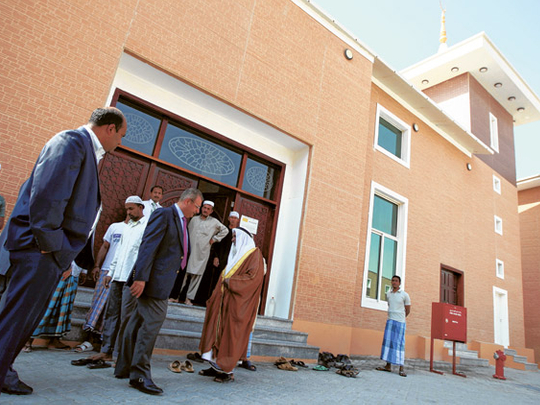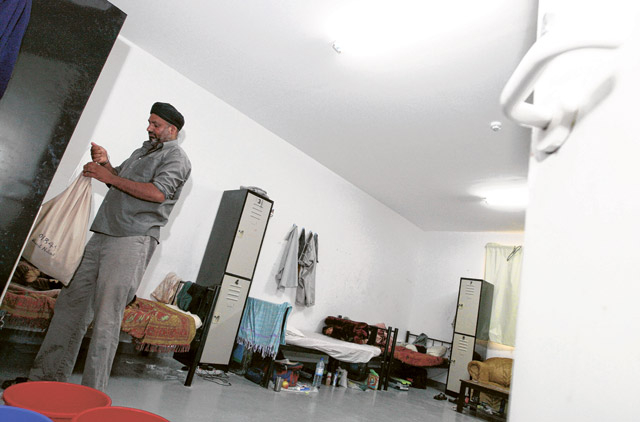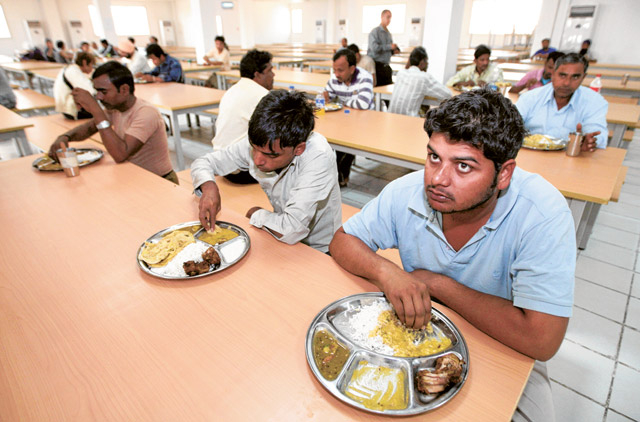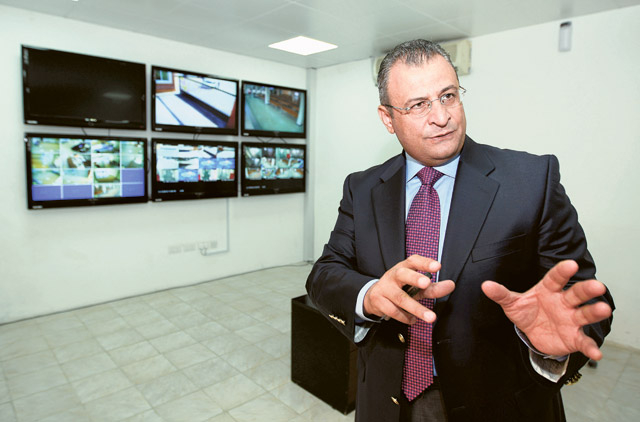
Abu Dhabi: It is a different life for Arlie Castillo now, for he finally has the luxury of time he craved for since moving to the UAE.
For five months, Castillo, 25, who works in a vehicle maintenance company, used to live in a shared apartment in Musaffah, and could hardly find time for himself given his workday, commute, and household errands.
"I was out at work from 7am to 7pm, and after getting home, I had to cook, do my laundry and clean up. It was hectic and tiring. I had no time to relax or socialise," Castillo said.
"Now, I have to worry about none of these. In fact, when I get home in the evenings, I finally have time to chat to my friends," Castillo told Gulf News.
Castillo is one of 7,100 residents of Al Salam Living City, which offers housing and living options for male workers in the emirate. Located on the outskirts of the capital in the Hameem area, it is one of the 15 residential cities opened for workers in the emirate by the Higher Corporation for Specialised Economic Zones (ZonesCorp).
The 160,000 square metre facility currently houses mostly construction sector workers, and its 2,880 rooms can house nearly 28,000 workers.
Hesham Sidani, general manager of Al Salam Living City, told Gulf News that the aim was to provide workers with a comfortable and complete living environment. "This is a city, not an accommodation, and so it includes all the basic amenities required of a city within its gates," Sidani said.
Residents live in shared rooms, which can accommodate a maximum of 10 men at a time, and share common bathrooms located on each floor.
"As per ZonesCorp regulations, we allocate each worker about 3.9 square metres of space in a room, which includes a bed and a cupboard. Including the three meals a day that we provide, accommodation for a single worker costs an average of Dh 390 a month," Sidani said.
Nevertheless, what qualifies Al Salam as a ‘city' are the near-1,000 trees and saplings that are being planted, as well as the range of amenities. A recreation centre, which includes pool tables and table tennis, is scheduled to open soon. The centre also has a number of television rooms, each of which is dedicated to programmes in a specific language, such as Malayalam, Hindi, English and Arabic.
"The medical centre, which currently deals with emergency cases only, will also be open for consultancies and basic treatment soon. In the main square, we have electronics stores, a café, a barbershop and a supermarket, and are in talks to open a money exchange centre," Sidani said.
Mealtime
Sixteen dining halls cater to the residents at Al Salam City and workers are not allowed to cook in their rooms. While some workers complain about not being able to cook, a variety of cuisines are served to suit different palates and tastes at the city, including Filipino, Thai, vegetarian, Arabian, Pakistani etc. Mohammad Latif, 24, a charge handler from Pakistan, said having prepared meals was one of the best parts of living in a worker residential city.
"Of course it doesn't compare to eating at home. But then I don't normally find the time to cook for myself, I also find time to socialise after a hard day's work, which I didn't have in the past four years that I have been working in the country," Lateef said.
"I am happiest that the mosque is so close to my rooms," he added.
The one complaint most workers had was Al Salam's distance from the capital city, which forced them to look for means of transportation. "We are away from our families and need to go out on our days off, so it would be a huge help to have a public bus system we could use," Raghbir Singh, 41, from India, suggested.
Numbers: Worker residential cities in Abu Dhabi emirate
- 15 residential cities currently opened
- 115,000 residents living in these cities
- 7 residential cities to open in Abu Dhabi by 2012
- 1 residential city to open in Al Ain by 2012
Source: Higher Corporation for Specialised Economic Zones















